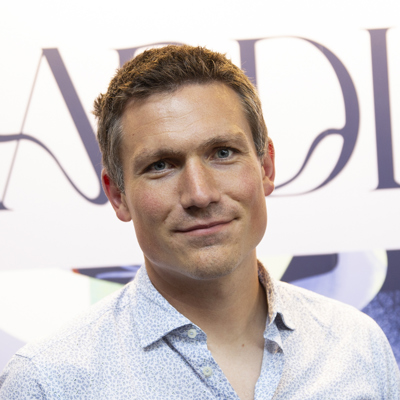
Thomas Coopman
Software Consultant
Actions
Thomas Coopman is a senior consultant at Aardling. He trains and consults teams working in complex environments to bring meaningful change to their organisations. He has built deep expertise in Domain-Driven Design and optimising for team productivity and efficacy.
Thomas excels with organisations that recognise that high-performing teams need both technical excellence and a relentless focus on process, practices, and environment.
His childhood curiosity with computers took him to the University of Leuven to study computer science. While there, he grew an enduring love for learning new programming languages, with a current proclivity for all things functional programming.
Thomas teaches several public classes on topics ranging from Strategic Design, EventStorming, and Tactical Patterns at DDD Academy. He’s also a regular public speaker, with recent well-received talks at DDD Europe and KanDDDinksy.
Outside of software, Thomas is a keen parent and a triathlon hobbyist.
Case study: a transformation from feature teams to stream aligned teams at Protime
I recently helped a Protime (https://www.protime.eu/) with a transformation from feature teams to stream aligned teams - or how we called them: domain teams.
In this case study, I'll go over what went wrong with their past setup, what kind of problems we've solved and what challenges are still open.
I'll talk about changing the team structure (from mostly dev teams to more cross functional teams) and giving teams more autonomy, clear ownership and responsibilities helps the teams grow and improves flow in the company.
Limitation-driven exploration: Hands-on modelling workshop
This is a hands on lab with limited capacity.
Domain modelling is a fundamental skill in software design, yet practitioners often fall into comfortable patterns that may limit their modelling effectiveness.
This interactive 2-hour workshop challenges you to break free from conventional thinking by exploring varying modelling limitations.
Working in small groups, you will engage in multiple modelling rounds where you tackle problem domains while adapting to randomly assigned restrictions that push their creative boundaries.
Example limitations could be: "no verbal communication" or "UI-only modelling". These intentional boundaries will force you to explore alternative modelling techniques and communication strategies.
After each modelling session, small structured retrospectives a run in order to evaluate their experiences, share insights, and discuss how the restrictions influenced their modelling decisions and group dynamics.
By the end of this workshop, you will have practiced domain modelling from multiple perspectives, strengthened your ability to communicate complex models through various means, and explored when and how to apply different modelling approaches in your daily work.
Human vs Machine
In this hands-on coding session, we’ll test the limits of current large language model (LLM) capabilities by putting them head-to-head with humans.
Participants will join one of three groups: Humans, Machines, or Cyborgs.
Each group will tackle the same code kata, but with different constraints:
* The Machine group will use LLMs to solve the kata—no handwritten code allowed.
* The Human group will solve the kata without any assistance from LLMs.
* The Cyborg group can combine both approaches as they wish.
At the end, we’ll compare the results and have a brief discussion about the current limitations and strengths of LLMs in real-world coding scenarios.
Note 1: This is not a tutorial on how to use LLMs. Basic familiarity with coding and LLMs is assumed.
Note 2: Participants will be working in pairs or groups. Come ready to collaborate!
Please note that Sessionize is not responsible for the accuracy or validity of the data provided by speakers. If you suspect this profile to be fake or spam, please let us know.
Jump to top